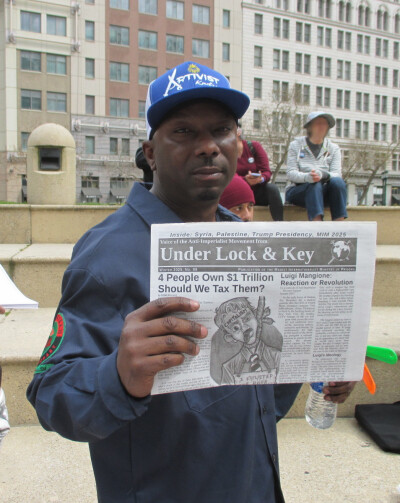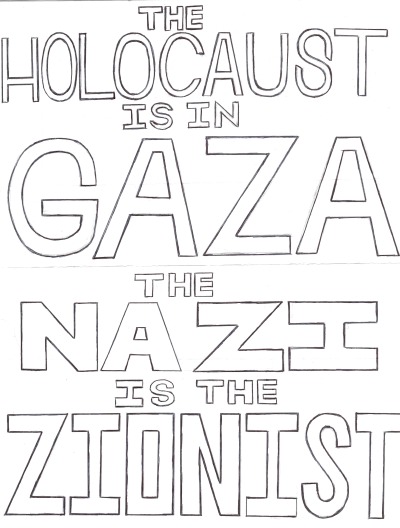MIM(Prisons) preface: Below a comrade in United States
Penitentiary - Tucson tells a story about how prison staff institute
arbitrary mass punishment. Often such mass punishment comes in the form
of lockdowns, which have seemingly become more common in recent years.
All level IV prisoners in California are currently on lockdown, and had
access to their tablets and phones taken away. The California Department
of Corrections and Rehabilitation announced this on 8 March 2025,
calling it “modified programming” as it applies only to level IV
prisoners.(1) They have ordered the lockdown in response to an alleged
surge in violence, yet we know that these forms of group punishment, and
the new form of punishment of taking tablets away, only leads to more
violence. As always, this isn’t about safety, but about control. In
addition, the Ashker settlement, which followed the biggest
hunger strikes to ever occur in U.$. prisons, supposedly prohibits
collective punishment. So this “modified programming” is a violation of
the CDCR’s own rules and court orders. But no significant organization
currently exists inside to hold the pigs to their words. And with
communications locked down the CDCR will control the narrative through
its agents in the prisons.
A comrade in Allred Unit in Texas reports how lazy staff use
collective punishment:
“TDCJ has started something new where if anyone get caught smoking or
think they were smoking they locking the whole pod down for 15 days and
they take away phones, e-messages, music, law library, Pando app,
visits, commissary and school. I am about to write my step 1 grievance.
If you can please point me to an attorney on this issue because they are
putting other inmates lives in jeopardy and then telling all prisoners
to start snitching, when the laws are the ones bringing the drugs inside
the unit. It’s a way for them not to run day room.”
And a comrade in St. Brides
CC in the Virginia DOC reports that rec has been very limited due to
“Deuce” or K2 since last summer. Eir pod was on sanctions for months
last summer with limited JPAY kiosk, no rec, no chow hall, and no
programming. When someone “fell out” on K2 that persyn would be removed
from the pod, yet the people remaining would be punished! Most
recently,
“they still have not brought rec back to normal hours and they hardly
offer many programs – especially when you consider all the days classes
are canceled. I dream of the day when they bring back some type of
normalcy.”
Recently comrades in the North Carolina Department of Adult
Corrections launched a campaign to combat
the system of labeling prisoners Security Risk Group (SRG). We’ve
begun to receive grievances from people held in conditions similar to
those temporary measures by CDCR above, but for years or decades, as
CDCR has also done historically; all because of who these prisoners
allegedly associate with, not because they have committed any crime or
broken any rule. These forms of group punishment date back centuries in
this country in the form of national oppression, but today they are
legalized in the form of gang injunctions and security threat group
designations.
The oppressed nation of Palestine knows well the wrath of collective
punishment it has faced for decades by the U.$. outpost known as
“Israel.” While U.$. prisoners face torture, Palestinians are currently
facing starvation as I$rael has cut off aid to Gaza for over a week,
starting 2 March. This came in response to Hamas demanding that I$rael
continue to meet the terms of the ceasefire agreement from 19 January.
This has turned the month of Ramadan into more suffering and worrying
rather than generosity and worship for Palestinians. Then on 9 March
I$rael cut off electricity to Gaza, which will also prevent
desalinization plants from providing the water which the people depend
on. With Gaza’s official death toll at over 60,000 since the recent
invasion by I$rael began, the genocide continues through the illegal
denial of basic needs to the people.
As the comrade below says, such collective punishment is an
international war crime. It is used to crush whole populations to the
will of those in power. And just as it breeds resistance in U.$.
prisons, it breeds resistance in the Palestinians suffering at the hands
of I$rael, as well as millions of supporters watching the genocide
unfold. The future of the oppressed nations around the world lies in
uniting in a common struggle against imperialism.
Notes: CDCR
High‑Security Areas Placed on Modified Movement
A Federal prisoner: The administration (Warden,
Associate Warden, Captain) use frivolous excuses to apply mass
punishment on prisoners. Officers abuse their authority and use excuses
to “justify” punishment. It may sound better if I explain the situation:
18 December 2024 – I was in the Education building, doing some
research. About 8:30 AM, there was an incident call, or what we call the
“deuces”. This is when there is a situation, like a fight, happening
somewhere on the compound. At the time, we were all outside or about the
compound. It was outdoor rec for many, some were on the yard, some were
indoors at the chapel, or indoor rec, or library.
But when the “deuces” are hit, everything stops temporarily. In this
case, the officers all ran towards E Unit. We all looked to see if there
was a fight; you’d hate to see a fight so close to Christmas, because
the Warden and staff will use any excuse to lock us down over the
holidays and claim “safety and security”.
As it turns out, the incident wasn’t an incident at all. Several guys
heard on the hand units that they said, “Stand down, false alarm”. What
that meant was that there was nothing to really worry about.
But, less than five minutes later, they called for everyone to leave
the programs building. This was very frustrating to those trying to
work. Many were in classes, some working on legal work. It is very
frustrating when USP Tucson finds reasons to shut everything down. They
have a very malicious history of doing this and are too incompetent to
hold staff accountable for preventing us from programming.
So, I walk out, with everyone else, and heard that they will do a
“Yard Recall.” That means everyone has to go back to their dorms. When I
got outside, I asked a few guys that were on the yard: “so, what do we
know?” They told me that it was a false alarm, but somebody may have
said something to one of the female officers, and she felt “offended”,
so she told the Lieutenant, who called for an entire recall.
I was frustrated. What did ANYBODY in the programs area have to do
with ONE person on the yard with bad behavior? If what the guys on the
yard said was true, then there was no reason to use mass punishment. I
came out of the building and looked back and saw how many guys were
coming out. They may have been over 100 people affected by this cowardly
move by the staff. Guys in the chapel, who had nothing to do with the
incident. Guys in indoor recreation that had nothing to do with what
happened outside. Guys in GED classes and those in the library, who were
nowhere near the incident. All being punished because staff “got in
their feelings.”
What a cowardly act.
We were on the yard until 9 AM when they opened the gates and
everyone went back to their units. I noticed there was no official “Yard
Recall” as they should have done. While we were out there, I saw guys
talking to one of the Lieutenants, asking why the severe action. I
didn’t hear what he said, but I saw the extreme disappointment in the
prisoners, as if the answer didn’t make sense.
Why shut EVERYTHING down for what one person did? This again is
called Mass Punishment, and it is strongly frowned upon by most nations.
The United Nations has what is called the Nelson Mandela Rules, and one
of the elements is that they forbid mass punishment in prisons. Most
nations signed on to this, but the United States never ratified it…
explains why they still do it.
In 2024, there have been about 102 lockdowns on the compound at USP
Tucson, compared to 118 in 2023. In 2024, there have only been SIX
instances where the “deuces” were hit for altercations. In 2023, there
were 25. This is a significant decrease in violence on the compound.
Since 23 May 2024 to the current date (December 18th), there has only
been ONE incident regarding a fight. That was on September 22nd, and
staff wrongly used that excuse to change to a “staff assault” so that
they could punish the entire facility for at least 30 days on lockdown.
They then punished us by decreasing the phone calls from 10 minutes with
an hour wait to a five minute call with a 90 minute wait, making it
extremely difficult to communicate with families.
Since we came off the lockdown of September 22nd, coming off in late
October, there have been about 18 lockdowns… NONE of them were because
of physical altercations. They were all “administrative”.
What I am showing is that, even though this is a prison and a
penitentiary, the people here have done as much as they could possibly
do to reduce the violent incidents in the prison. When a prison can go
from 25 lockdowns because of fights to currently six, it shows that, for
the most part, we know how to behave.
But, if we are going to be punished every time ONE person does
something wrong, then staff has created a standard that nobody can hope
to attain. The Warden is either a fool to think that every single day on
a penitentiary should be hassle and violent free, or he is maliciously
bent on punishment for the prisoners.
If the Associate Warden ignores the fact that the prisoners here have
done all they could to stay out of trouble and creates excuses as to why
we are being punished, it is clear that she has no interest in
rehabilitation.
In all this, no prisoner was able to rehabilitate, because USP Tucson
was so busy looking for another screw to put in the population. There
was no security issue. It was a false alarm, but they found a reason to
disrupt every single angle for rehabilitation. This is the perfect
picture of mass punishment in prisons, yet staff all consent to it while
hiding behind made-up policies that don’t exist.
I’ve often said, “sometimes the worst people in prisons aren’t the
ones behind the steel doors, it’s the ones coming out the parking lots
of those prisons.” We simply cannot live with the program in USP Tucson.
The Warden, Associate Warden, Captain and all the departments refuse to
let us reform.










